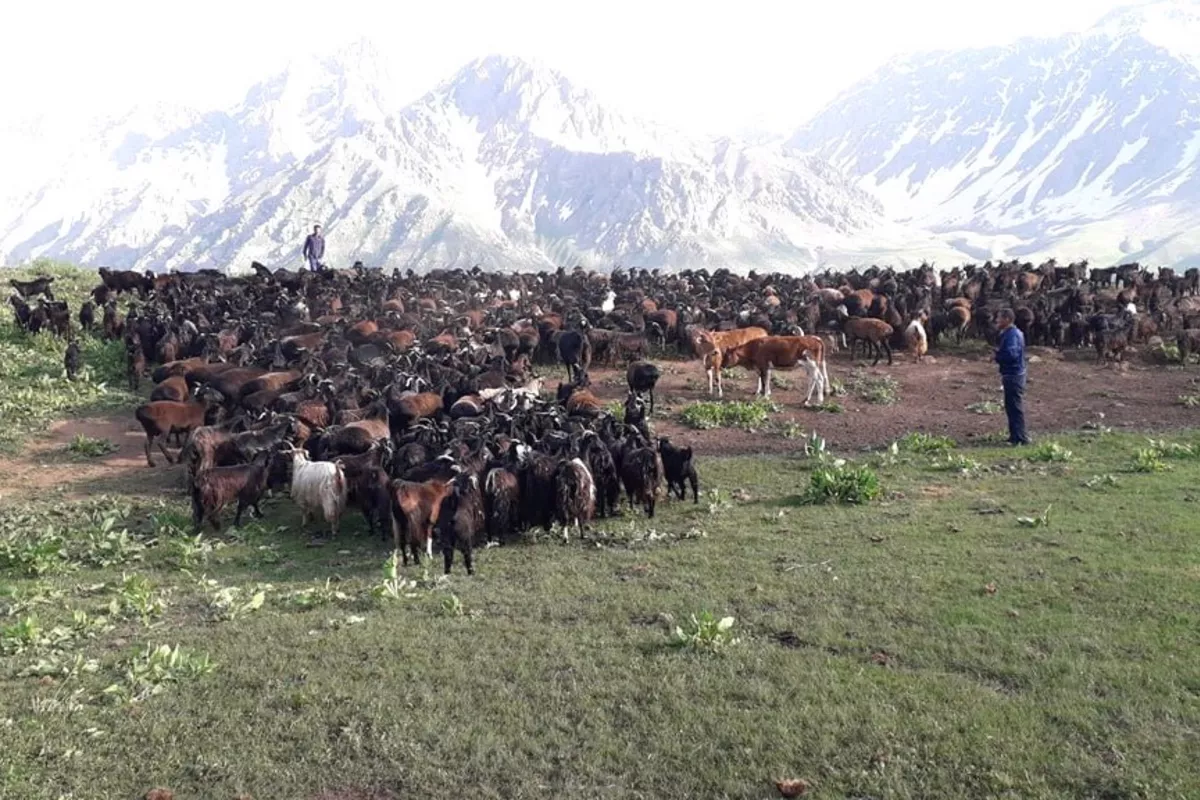
photo: Asia Plus
More than 50 per cent of Tajikistan’s pastures are significantly degraded, posing a severe threat to the country’s agriculture and food security, according to the Global Land Outlook Thematic Report on Rangelands and Pastoralists, published by the United Nations Environment Programme (UNEP) and its partners.
The report highlights that while the nation’s most accessible grazing lands are overexploited, many remote pastures remain underutilized due to poor infrastructure, limited road access, and inadequate water supplies, The Caspian Post reports via Tajik media.
Covering approximately 3.1 million hectares, pastures play a crucial role in Tajikistan’s rural economy, supplying up to 70 per cent of livestock feed. Nearly 60 per cent of rural households depend on livestock as their primary source of income, underscoring the urgent need for sustainable pasture management.
Experts contributing to the report suggest that adopting rotational grazing systems and improving infrastructure could boost pasture productivity by 20 to 30 per cent, thereby strengthening food security in the region.
The findings draw on data from specialists at the National Academy of Sciences of Tajikistan, Tajik Agrarian University named after Shirinsho Shotemur, the Ministry of Agriculture, and NGOs active in Khatlon province and the Gorno-Badakhshan Autonomous Region (GBAO).
Following the dissolution of Soviet-era collective farms, Tajikistan lost its centralized pasture management framework. The absence of coordinated planning and rotational grazing has led to severe overuse of nearby pastures, while distant grazing lands remain largely neglected due to poor access and lack of water.
This uneven use accelerates soil erosion and vegetation loss, particularly in foothill areas where degradation is most pronounced. Experts warn these trends increase the risk of desertification, reduce pasture productivity, and degrade grazing land quality.
More than half of the country’s pastures now show varying degrees of degradation, critically undermining national food security. The report also notes that similar unsustainable land management practices are prevalent across Central Asia and Mongolia, causing widespread environmental and economic damage.
The deterioration of pasture quality is already impacting rural livelihoods. Limited access to nutritious forage reduces livestock productivity, lowering household incomes and forcing families to spend more on feed. This vicious cycle pushes many rural residents, especially those reliant on livestock, deeper into poverty.
As economic opportunities shrink, migration pressures grow. Increasing numbers of rural inhabitants-particularly youth-are moving to cities or emigrating abroad for work. This trend worsens Tajikistan’s labor migration challenges and further weakens rural communities, especially in highland regions where alternative sources of income are scarce.
The report underscores the urgent need for coordinated action to restore pasture lands, improve infrastructure, and support sustainable rural livelihoods to ensure food security and economic stability in Tajikistan.
Share on social media